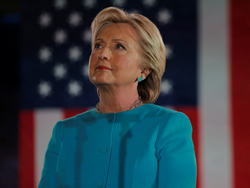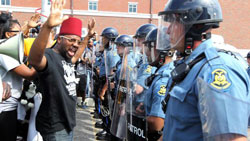Professors at the University of Oxford have found that voters who have been exposed to automation were less likely to vote for the former Secretary of State, Hillary Clinton, in the 2016 Presidential Election.
Carl Frey, Thor Berger, and Chinchih Chen at the University of Oxford studied how robots in the workforce influenced voters who worked in those factories.
In their study published last month, they found that workers exposed to automation were less likely to vote for Clinton than for Donald Trump.
Clinton lost key Midwestern states on Election Day—namely Michigan, Pennsylvania, and Wisconsin. These states had been reliably blue in previous general elections; however, Clinton lost them to her opponent in the race: now-President Trump.
“This finding is not surprising considering that Donald Trump successfully emphasized economic nationalism in his campaign,” Joseph Patten, Ph.D., an associate professor of political science, said.
“[This] pulled votes away from Hillary Clinton in states like Michigan, Wisconsin, and Pennsylvania,” he added.
However, according to the Oxford study, research found that had the employment of robots in the workforce been just two percent lower, those states would have swung in Clinton’s favor—and we would be calling her “Madam President.”
In an interview with CNBC, Frey said that 47 percent of jobs in the United States are at risk of automation due to the rise of artificial intelligence (AI).
“Robots and AI can be both beneficial yet terrible,” Stephanie Okereke, a sophomore computer-science student, said.
“For starters Robots and AI facilitate a plethora of processes…that would take humans a considerable amount of time to complete,” she explained
“Hence, the workforce will heavily rely on AI to carry out certain processes that are either time consuming or humanly impossible,” Okereke added.
“Without a doubt, robots and AI will be sought after in the future with industries turning to technology to commit to tedious tasks,” Okereke said.
The outsourcing and transplantation of jobs created a climate of resentfulness amongst working-class voters. “Trump capitalized on the resentment of America’s working class,” Corey Wrenn, Ph.D., Director of the Gender Studies Program, says.
“[Working-class voters] were frustrated by an economy that had switched from manufacturing to service,” Wrenn added.
Therefore, the creation of jobs, and keeping them in the United States, was among the most visceral forces that drove those voters to the ballot box last November.
In an interview with LinkedIn during the Presidential-primary race, Clinton said that the United States may not yet be prepared for an “advanced technological economy,” which would rely heavily on automation.
“You know, driverless cars may be an exciting new step in transportation,” Clinton said, “but that means a lot of truckers and cabbies and Uber drivers and a lot of other people may well lose jobs.”
“…I believe that people should have work with purpose and dignity. I think it’s so much a part of the human DNA,” she explained.
Furthermore, Clinton talked about Trump’s “Make America Great Again” mantra, and how she believes it created “a cruel fantasy.”
“[It] is really code for, ‘Hey, I can turn the clock back. And I can make you feel good. And I can get you the job that you used to have and even at more money,’” she said.
In his research, Frey noted that “Trump did not make any pledge to bring technological progress to halt during his election campaign. In fact, he barely mentioned technology at all.”
“[Trump’s] pledge to bring back jobs in mining and manufacturing, which have long been automated away, bears with it an implicit promise to restrict automation although few voters will have noted this logic,” Frey added.
Political analysts have said that Clinton did not campaign enough in the Midwest, which consequently led to her losing those key states. In her book, What Happened, Clinton writes about how her margins in those states stacked up against her Republican opponent.
“If just 40,000 people across Wisconsin, Michigan, and Pennsylvania had changed their minds, I could have won,” she wrote. “…a few more trips to Saginaw [Michigan] or a few more ads on the air on Waukesha [Wisconsin] could have tipped a couple thousand votes here and there.”
Before Frey’s research was published, Clinton writes about the fear associated with the automation of jobs in her book—she regrets she had not mentioned it sooner.
“My staff lived in fear that I’d start talking about ‘the rise of robots’ in some Iowa town hall,” Clinton wrote. “Maybe I should have.”
IMAGE TAKEN from Business Insider



